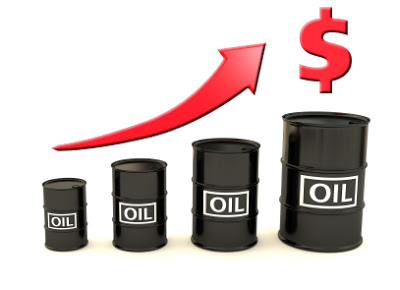
Uncertainty is hanging over the global oil market. Thanks to the eruption of violence by militants in Nigeria’s oil–rich Niger Delta region and the wildfires ravaging the oil belt of Canada.
For the most parts of this week, this air of uncertainty has pushed up the price of crude appreciably. A major factor which also appears to have helped the surge in price is the revelation by the U.S. Energy Information Administration that domestic oil production would fall by 830,000 barrels per day (bpd) in 2016. That forecast tends to tally with what most energy sector watchers had expected to happen. The EIA however, stated that the decline in production will definitely ebb before the first quarter of 2017 due to higher crude prices. Brent Crude price rose by 1.59 percent to $45.20 per barrel, while the Texas Intermediate of the U.S. sold for around $44.51.
Concerned observers back in Nigeria are however not rejoicing over the current situation. The resurgence of violence by militants in the Niger Delta means that the increase in the price of oil at the global market is not impacting positively on the nation’s revenue. Johnson Ekile, an oil and gas expert told People & Power that the rise in oil prices should have brought a windful to Nigeria, but because of the situation in the Niger Delta, the country cannot produce enough even to fill her OPEC quota.
Yet there are analysts who believe that the momentary setback will not last long. They hope that the disruptions are temporary and most of the lost barrels will soon return. Already most oil producing countries especially those around the gulf region including Saudi Arabia have indicated their resolve to up their production output before the end of this year.
However, for now, Nigeria’s oil and gas terrain is on an all time volatile frequency. Most oil companies operating within the Niger Delta region are mostly concerned about the safety of their workers. The statement by the chairman of the Warri branch of the Nigerian Union of Petroleum and Natural Gas Workers, Cogent Ojobor sounds very germane and instructive. “The best thing for any reasonable company to do is to evacuate its workforce,” he said.

Dangote Announces ₦739 Per Litre Petrol Price Cut Nationwide
CBN Introduces New Nationwide Cash-Withdrawal Limits
Nigeria’s Foreign Reserves Hit $46bn For First Time Since 2018 — CBN
Nigeria’s Oil Output Rises Slightly to 1.4m Barrels Daily